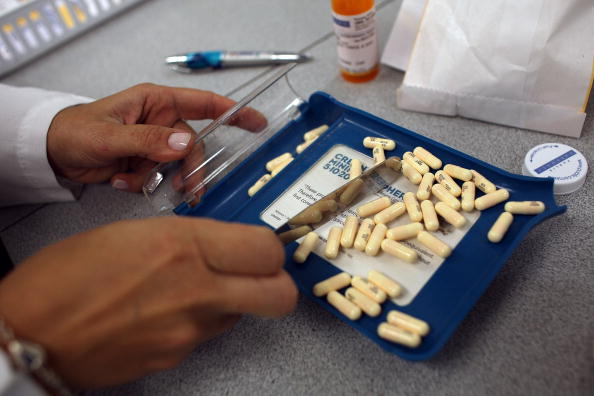Your relationship with your doctor is a personal thing. You want someone who understands your conditions and knows the best way to communicate with you. But, this is also a relationship that requires a lot of give and take.
How you act toward your doctor can really define that relationship. And all too often, patients have certain ticks and behaviors that drive their doctors completely crazy. Check out our list to make sure you aren’t doing any of these things that drive your doctor completely bonkers. (Page 9 is a huge faux-pas!)
Accosting your doctor outside of the office

That’s great that you feel comfortable enough to go up and say “hi” to your doctor when you see them in line at the grocery store, or out to dinner with the family. However, that isn’t the time for you to ask what kind of medications you should be on. “While (the patients) all think that I remember all the details of their history, I don’t,” Melissa Young, M.D. tells Physicians Practice. “I will generally give them some brief generic advice, tell them to call the office during the next business day, at which point I can go over their history and give them a more detailed answer.”
Next: Is there anything worse than this common habit?
Not showing up for your scheduled appointment

Everyone gets busy from time to time and can’t make it into the doctor’s like they previously thought. But flat out not showing up for an appointment is bad form. And it drives your doctor nuts for multiple reasons. Everseat.com explains that “last-minute appointment cancellations and no-shows hurt (a practice’s) finances — and can even take a toll on patients’ health.” At the very least, your doctor’s office deserves a cancellation and rescheduling call.
Next: Here’s a great way to irk your physician …
Using the phrase ‘I Googled it’

On the long list of phrases that drive your doctor bananas, this is somewhere toward the top of the list. Whether it’s WebMD or a basic Google search, doctors across the board prefer that their patients simply don’t come into their office convinced the internet gave them all the answers. Why? Because the internet may be convincing you of symptoms you don’t even have. The Cut explains that “it’s overburdening the health-care system, diverting doctors’ time and resources to investigating all of the minor bruises and colds that don’t actually need medical attention.”
Next: Oh and if you really want to be obnoxious …
Thinking you know more than your doctor

Let’s face it — chances are, you aren’t a doctor yourself. So telling them how to do their job is a surefire way to start problems on your next visit. For starters, not trusting your doctor’s expertise will make your visits difficult because of the doctor-patient relationship. Plus, Physicians Practice tells us that “the patient who crosses the line from well-informed to over-informed is not only detrimental to the relationship, but can also be costly.” In short: Your doctor isn’t getting paid for the time it takes to break down your ego and give proper medical advice.
Next: Speaking of things that make your appointment longer than it needs to be …
Coming in with a laundry list of symptoms

This probably sounds a little counter-intuitive. But doctors, in fact, don’t like when you come into an appointment with a lengthy list of unrelated symptoms. Adjunct clinical professor Lisa Neal Gualtieri explains to Physicians Practice that this is because “patients don’t fully understand the diagnostic process.” Your doctor may ask what the most pressing matter is to discuss in order to get you the right help in a sizable amount of time.
Next: Many of us have done it. And it drives doctors bonkers.
Blatantly lying about your health history

Sure, we’ve all told a little fib or two. But an all-out blatant lie to your doctor can be detrimental. Shelly K. Schwartz tells Physicians Practice that “a surprising number of patients withhold information or outright lie to their doctors for fear of being judged, an aversion to being lectured, or because they wish to present themselves in a positive light.” This can, unfortunately, lead to an improper diagnosis and a lack of trust between you and your doctor.
Next: And if you don’t trust your doctor, this can happen.
Bad-mouthing your last doctor

Gossiping about your last physician goes along the lines of acting like you know more than your doctor. Doctors aren’t supposed to be bad-mouthing each other — although, that can happen — for fear of bringing on a lawsuit. Additionally, openly talking bad about your last doctor will give your current doctor the impression that they’re next on your list of gossip victims.
Next: Here’s a big no-no for the doctor’s office.
Arguing with your doctor

You may not completely agree with your doctor about something. Or heck, maybe you’re having a bad day and snap easily. None of that is an excuse to become hostile toward your doctor or start an argument. Gizmodo points to a study revealing that patients are likely to get worse medical treatment if they’re rude to their physician. Plus, if you become argumentative enough, the doctor may just ask you to leave the premises — and may refuse to treat you anymore.
Next: If you think being a jerk to the doctor is bad, this next behavior is even worse.
Being rude to the receptionist

Yes, there is the stigma out there that most medical receptionists are rude. But that doesn’t give you the go-ahead to rail on them the second you walk into your doctor’s office. In fact, this is a negative behavior that drives doctors nuts. Physicians have to look out for the well-being of their staff to ensure that their practice runs smoothly. So, more than likely, your doctor isn’t going to tolerate you bashing their secretary.
Next: Yet another way to drive your doctor insane
Gossiping about other patients

There’s nothing wrong with chatting up someone in the waiting room. But turning another patient’s ailments into target practice is a surefire way to tick your doctor off. Your physician likely already has to remind their staff not to gossip about individual patients while others are in earshot. The last thing they want is for one of their patients to think that this behavior is OK. Focus on your own visit instead.
Next: And while you’re worrying about yourself, you should avoid …
Coming in un-showered

This should be a no-brainer — showing up un-showered and un-kept is just gross. Even if you’re a woman getting a pap smear — douching beforehand can alter the results — a basic shower is preferable to showing up to your doctor’s office smelling terrible. On that note, your clothes should be clean as well. “Wear clean underwear,” Dr. Ted Epperly, M.D. tells Men’s Health. “I can’t tell you how many times that doesn’t happen.”
Next: This next one may surprise you.
Demanding antibiotics

What’s wrong with asking for antibiotics? Quite a bit, actually. “Many times, such as for viral infections or other infections that will usually resolve on their own, antibiotics are not helpful in getting people to feel better or get better faster,” Pritish Tosh, M.D. tells The Huffington Post. Plus, overusing antibiotics can aid in the rise of antibiotic-resistant bacteria, Tosh continued.
Next: You may also be driving your doctor bananas if you are …
Refusing to get your children or yourself vaccinated

This trend is seriously driving doctors up the wall. “Since we have seen a reduction in vaccination, we have seen a concomitant increase in vaccine-preventable disease in the United States,” Tosh tells The Huffington Post. “The science on this is quite clear: The vaccines we recommend for routine use in children and adults are extremely safe.”
Next: On the subject of refusing things …
Stopping medication without a consultation

You go to see your doctor before you get prescribed a new medication, right? So then why would you stop taking said medicine without consulting your doctor on that as well? As it turns out, many people stop taking their prescribed meds the second they start to feel even the slightest bit better, then wonder why their symptoms come back. This is something that doctors deal with regularly — as you may have guessed, it drives them crazy.
Next: And last but not least …
Asking for a ‘quick fix’

It’s quite simple — there’s really no such thing as a quick fix in the health world. Not for losing weight. Not for getting rid of a cold. “Many patients think that a pill or a fad diet will change everything, and that they have stumbled upon ‘the solution,’” David B. Agus, M.D. tells The Huffington Post. The best way to avoid asking this question and annoying your doctor? “Avoid the vitamins and supplements and quick fixes that have no data behind them.”
Check out The Cheat Sheet on Facebook!
Source: Read Full Article